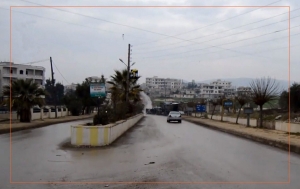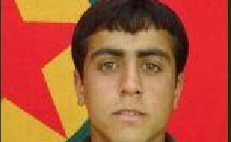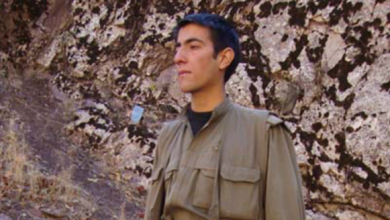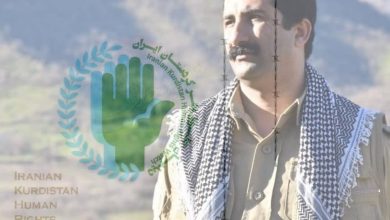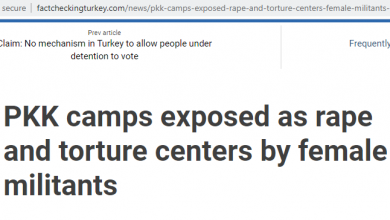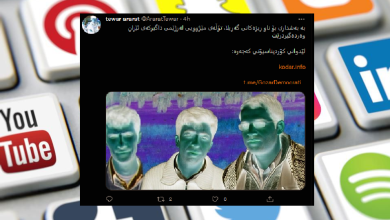Since its invasion of the Syrian Kurdish canton of Afrin in March 2018, Turkey has carried out ethnic cleansing of this territory north of Aleppo.
Before this invasion, the canton had a population of about 300,000 inhabitants, nearly 98% Kurds and it also hosted, according to UN statistics, 125,000 internally displaced persons, mostly Kurds fleeing the bombardments of the Syrian regime, particularly in the province of Aleppo. In this canton, which remained far from the war, a Kurdish local administration managed local affairs and a self-defense militia made up of young men and girls from the canton ensured the security of this fertile territory rich in coveted water and natural resources and regularly attacked by Syrian Islamist and jihadist militias.
The Turkish regime saw this small territory as an “existential threat to the Turkish state” and decided to invade it with the green light from the Russians. The West, however allies of the Syrian Kurds in the war against ISIS, let it go, contenting themselves with a few verbal admonitions of no consequence. No state has gone so far as to seize the Security Council about this blatant violation of international law.
As a result of this invasion, initially, according to UN figures, 130,000 Kurds had to flee to the province of Aleppo where they survive in makeshift camps. The policy of terror, confiscation of property, arrests, kidnappings, torture, looting practiced under the aegis of the Turkish occupation army by the Arab and Turkmen Islamist militias pushed about 120,000 other indigenous Kurds and displaced Kurds to leave. Their homes, land and businesses have been donated to militiamen whom the Pentagon calls “scum of the worst kind”, their families and Arab refugees from Ghouta and Idlib.
According to the figures given at a conference devoted to the situation in the Kurdish territories under Turkish occupation held on January 30, 2021 in Qamishlo with the participation of numerous NGOs and witnesses on the ground, Turkey has installed around 400,000 Arabs and Turkmens in the canton of Afrin where the Kurds would barely represent a quarter of the population. The canton is practically attached to the governorate of Hatay (former Antioch, annexed in 1939 to Turkey). The Turkish flag flies over buildings, schools teach in Arabic and Turkish, electricity and telephone networks connected to those in Turkey. Mosque imams and preachers are appointed and paid by the Directorate of Religious Affairs (Diyanet) of Turkey. The Turkish Lira has become the currency of trade. Women have disappeared from the public space where Syrian militias in the pay of the Turkish army enforce the rules of Islamic Sharia. The main militia raging in the region is Ahrar al-Sharqiya, formed largely of former ISIS retrained by Turkish services.
The Rajo case
The town of Rajo in the canton of Afrin, located 3 km from the Turkish border and 30 km from Afrin was before the Turkish invasion populated almost exclusively by Kurds. Turkey has since settled 40,000 Arabs and Turkmens there and there are only around 12,000 Kurds left.
According to the Iraqi Kurdish news channel RUDAW TV, little suspect of pro-PKK or pro-YPG sympathy but sensitive to the fate of the Kurdish civilian population, which was able to cross-reference numerous testimonies from Kurdish survivors of this systematic ethnic cleansing campaign in the 15 villages around Rajo where 1,780 Kurdish families lived, there are only 308 families left, mainly composed of elderly people unable to move around and who prefer to stay at the risk of their lives.
One of these villages called Derwis which, before the Turkish invasion, had about 1000 inhabitants, was completely emptied of its population by the Turkish army which has occupied it since February 23, 2018 and transformed into a military camp. 1300 olive trees of the village were cut to prevent any further return of dispossessed Kurdish peasants.
Pro-Turkish militias have taken over more than 100,000 olive trees and olive presses in this territory. The Rajo train station, once a landmark on the Baghdad Bahn route, linking the Orient Express to Baghdad, has been turned into a prison and torture center for Kurds refusing to obey the occupation forces.
Ethnic cleansing is a crime against humanity under international law. The confiscation of property, theft, looting, torture, the assassinations of civilians perpetrated for three years by the auxiliary Islamist militias of the Turkish army are characterized war crimes for which the responsibility lies with the occupying power that is Turkey.
President Macron admittedly called Turkey a “criminal state” but there was no diplomatic or judicial follow-up. Divided, the EU remains inaudible to Ankara and NATO, supposed to be a family of democracies committed to human rights, continues to remain silent on the crimes of its Turkish ally.

